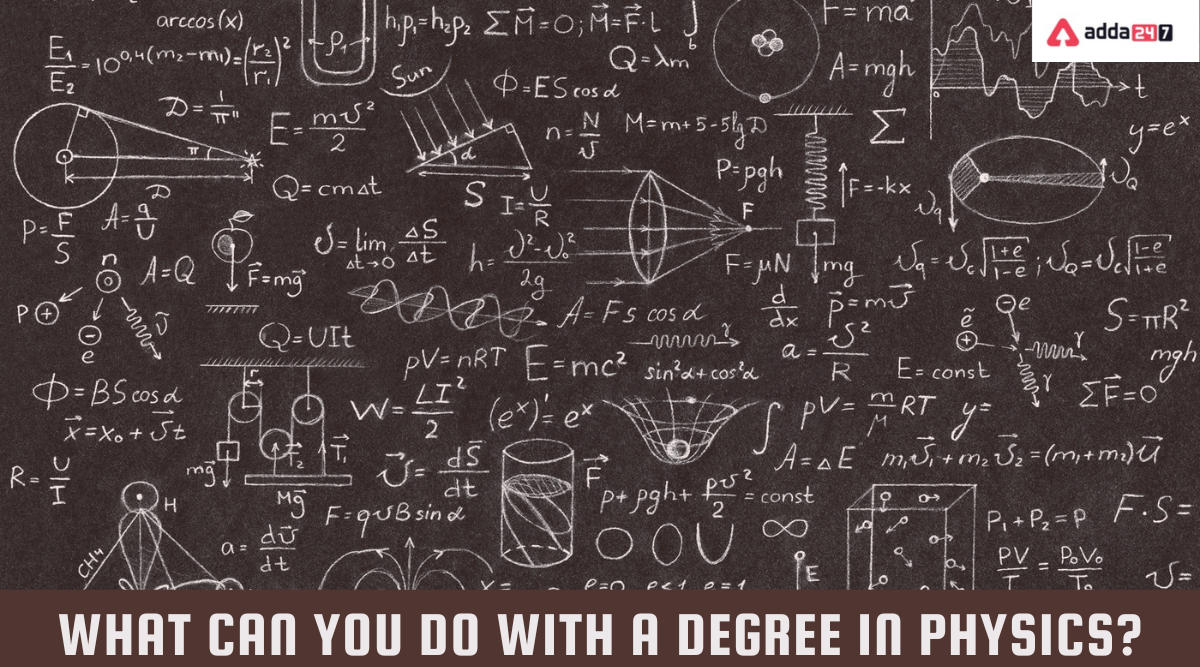What Can You Do With A Degree In Physics?
Physics professionals are taught to express their comprehension of a situation in exact terms and to explain these concepts to others. These abilities provide a range of job options for physics majors. Many physicists carry out fundamental research in business, academia, healthcare, and government. Others are professors in colleges and high schools. A significant portion of physicists also works in engineering or finance. A worker with a physics degree will be advantageous in almost any position demanding problem-solving abilities.
Your ability to pursue a career in any area of physics, engineering, molecular biology, microbiology, analytical and physical chemistry, medical science, space exploration, and, yes, market analysis is made possible by a physics degree.
Why Should You Think About Studying Physics?
Are the mechanisms at play in our environment fascinating to you? You may look into and comprehend how the cosmos behaves by studying physics. You will learn about technology, quantum physics, space, energy, matter, and more.
Even if you’re unsure of what line of work you want to get into, this broad field of science might be the best fit for you. Graduates of physics programs possess remarkable problem-solving abilities that are applicable to a variety of positions and businesses.
So What Can You Do With A Degree In Physics?
For potential students, one intriguing component of physics careers is their variety. Graduates in physics are in high demand across a range of industries. In addition to a broader comprehension of how the world functions on a scientific and human level, they include abilities related to numeracy, problem-solving, data analysis, and the conveyance of complicated concepts.
Physics grads also make more money because of their highly marketable and valuable skill set.
Different Types Of Degree in Physics
Associate in Physics degree
An Associate’s Degree in Physics is typically a two-year curriculum that takes two years to finish. This associate’s degree will pave your future career and the path to earning a bachelor’s degree. You will learn the fundamentals of topics including organic chemistry, Newtonian law, and the introduction to this field of study during the associate degree program.
Bachelor’s Degree in Physics
You can get a 120-credit bachelor’s degree in physics, introductory-level training in the life sciences and mathematics, and a thorough understanding of disciplines including climatology, information technology, mechanics, and aeronautics. Your bachelor’s degree program will emphasize math-related courses like calculus and computational sciences.
Physics Master’s Degree
A master’s degree in physics is required if you want to work in the field in the future. After earning your bachelor’s degree, you need to complete 30 more credits for this degree. With this degree, you will be able to conduct physics-related research and put your mathematical and scientific knowledge to use. Additionally, you will gain lab experience. You will get in-depth knowledge of astronomy, quantum physics, aerodynamics, electrodynamics, and other subjects during the master’s programme.
Physics Ph.D.
A scientific degree in the area of physics is a doctorate or Ph.D. Typically, it takes seven years to finish this degree. After earning your degree, you will be a scholar who can research, educate students, and work for private or public research associations.
Get your CUET preparation done with Adda247 online classes new CUET 2023 batch.
Top Colleges To Do A Physics Degree
- Panjab University
- Indian Institute of Technology Madras.
- Indian Institute of Science (IISc) Bangalore
- Indian Institute of Technology (IIT) Bombay
- Indian Institute of Technology (IIT) Kanpur
- Tata Institute of Fundamental Research (TIFR) Mumbai
- Indian Institute of Technology (IIT) Kharagpur
- The University of Delhi
- Institute of Physics Bhuvaneshwar
- Raman Research Institute Hyderabad
Degree in Physics: Admission Process
Some institutions require your 10+2 grades for undergraduate programs, while others have entrance exams. Take the JAM exam if you wish to pursue a master’s degree in science at IIT.
UGC NET is available for those who want to advance their studies in the field of research. Some students might desire to study for their master’s in physics overseas. For these students, the majority of international universities accept the ILETS and TOEFL as entrance tests.
Job Titles And Potential Career Fields in Physics
For physicists ready to start a career right away, graduate programs with research firms like DSTL or consulting firms like Atkins are obvious choices. These employers frequently hire graduates and frequently use on-the-job training.
Finance and IT are two more professions for physics grads. Large employers of physics graduates include the development of models and analysis. Risk analysis and weather forecasting are just two examples of related roles.
Sadly, teaching is one area where physics students fall short. To encourage physics graduates to choose teaching as a career, there are scholarships and bursaries available to assist with the expense of teacher preparation.
Jobs available to physics graduates in science, business, and other fields with additional training or qualifications include the following:
- accountant
- commissioning editor
- computer scientist
- consultant
- environmental scientist
- ergonomist
- materials specialist
- medical physicist
- nanoscientist
- patent attorney
- patent examiner
- research scientist
- secondary school teacher
- technical author
Ace your preparation level with CLAT 2023 preparation batch.
Conclusion
In conclusion, a bachelor’s or master’s degree is a must if you are serious about obtaining a Physics degree. Your understanding of physics will enable you to develop a promising career and commit your entire life to science. We sincerely hope that reading this article helped you comprehend a certain subject better.
Related Post:
- Commerce After 10th Class Exam Courses
- Photography As A Career: Jobs, Places Where This Course Can Be Done
- Fine Arts As A Career: Jobs And Best Colleges In India
- Why Do Birds Fly South In The Winter?- Birds Migration
- Archaeology As A Career Eligibility, College, Jobs
- Career After 12th For Humanities Students
- Blockchain Course: Meaning, Syllabus In India
- Physiotherapy As A Career: Definition, Course
- Artificial Intelligence: Definition, Future As A Career
- What Is Data Science?- How To Get Data Science Jobs
Degree in Physics: FAQs
Ques 1. Why should I pursue physics?
Ans. Since all scientific theories are based on fundamental ideas from physics, studying physics helps us understand the universe better. It takes some creativity, logic, and reasoning to understand physics.
Ques 2. What is a degree in physics?
Ans. A physics degree covers a wide range of ideas and integrations of mechanics, analysis, mathematics, and predictive modeling.
Ques 3. How long does it take to get a degree in physics?
Ans. A physics degree’s completion time is influenced by the educational program, your degree level, and your attendance record.



 NEET City Intimation Slip 2025 Available...
NEET City Intimation Slip 2025 Available...
 CUET GAT EXAM 2025 | GK Most Repeated To...
CUET GAT EXAM 2025 | GK Most Repeated To...
 CUET Exam Day Guidelines 2025, Check New...
CUET Exam Day Guidelines 2025, Check New...










